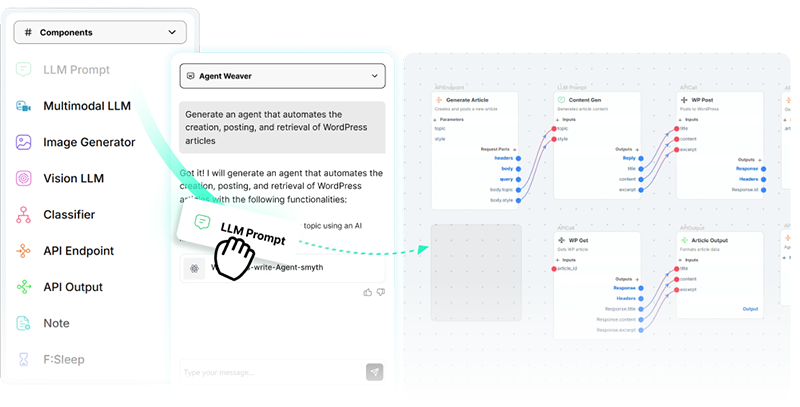Transforming Work with SmythOS
Transforming Work with SmythOS
Blog Article
Redefining Human-AI Collaboration
Synthetic intelligence (AI) is transforming industries ranging from healthcare to finance, but one critical concern remains at the forefront of advancement: inclusivity. While AI offers revolutionary potential to revolutionize lives, in addition it keeps the risk of reinforcing social inequities. For smythos to genuinely allow culture, it must be made to be inclusive. This means ensuring fairness, convenience, and representation at all phases of development.
The Struggles of Bias in AI
Statistics demonstrate that biased AI results certainly are a expression of the info they are trained on. Bad representation in datasets may lead to discriminatory outcomes. For example, a commonly reported study indicated that skin recognition software posseses an problem charge of 35% for darker-skinned girls, in comparison to significantly less than 1% for light-skinned men.That features a significant catch that disproportionately influences presently marginalized groups.

The problem is not just restricted to skin recognition. Language types have exhibited biases, reinforcing dangerous stereotypes within their outputs. Inclusive education knowledge and diverse teams of designers are crucial to mitigate these issues. Without this, the danger stays that AI will perpetuate social inequality as opposed to solving real-world problems.
The Benefits of Inclusive AI
When AI is produced inclusively, their benefits ripple across society. Inclusive AI can help bridge holes for underrepresented areas in education, wellness, and employment. As an example, accessible AI solutions like monitor visitors powered by organic language running have previously widened options for people with disabilities. But there's however untapped potential to make these answers prevalent as opposed to exceptions.
Study also reveals variety in AI growth contributes to innovation. A study from a premier institution notes that companies with high range in authority jobs are 45% more likely to report larger market share growth. These ideas underline why inclusivity in AI is not only a prerequisite for moral reasons but a bonus for advancement and progress.

The Road Ahead
Creating inclusive AI calls for modify across numerous dimensions. Diverse and representative datasets, intersectional testing operations, and effective moral governance would be the cornerstones of equitable AI development. Furthermore, policymakers must may play a role by enforcing regulations that push for transparency and accountability in AI systems.
The move toward inclusive AI is not merely concerning the technology. It's about redefining what progress looks like. By prioritizing inclusivity, we can ensure AI not merely eliminates issues but does therefore for everybody, causing nobody behind in the technological revolution.
While problems stay, the growing conversation around inclusivity in AI signs progress toward a more equitable future. By approaching biases today, we can design programs that encourage rather than exclude, reflecting the selection of the people they make an effort to serve.
Report this page